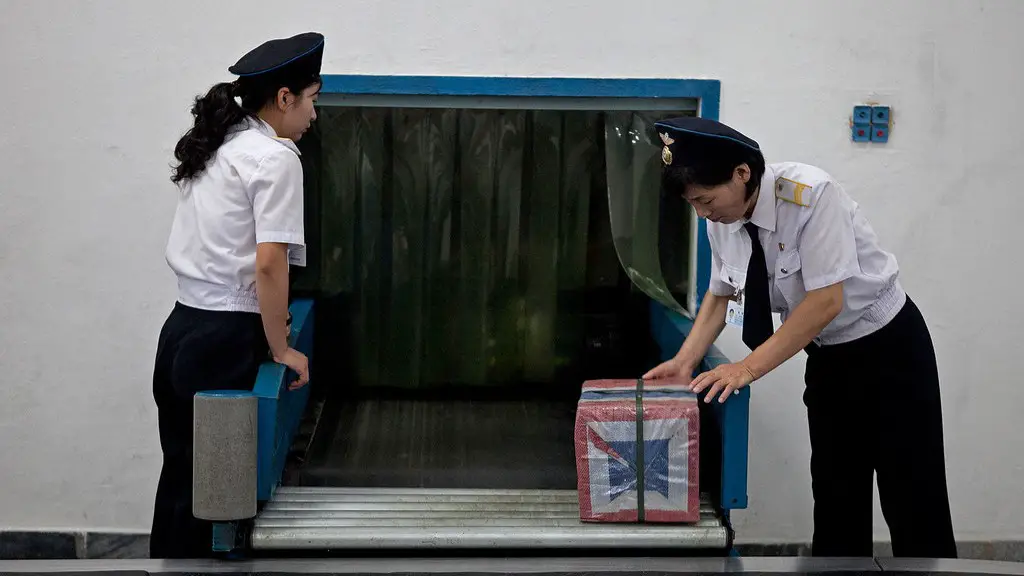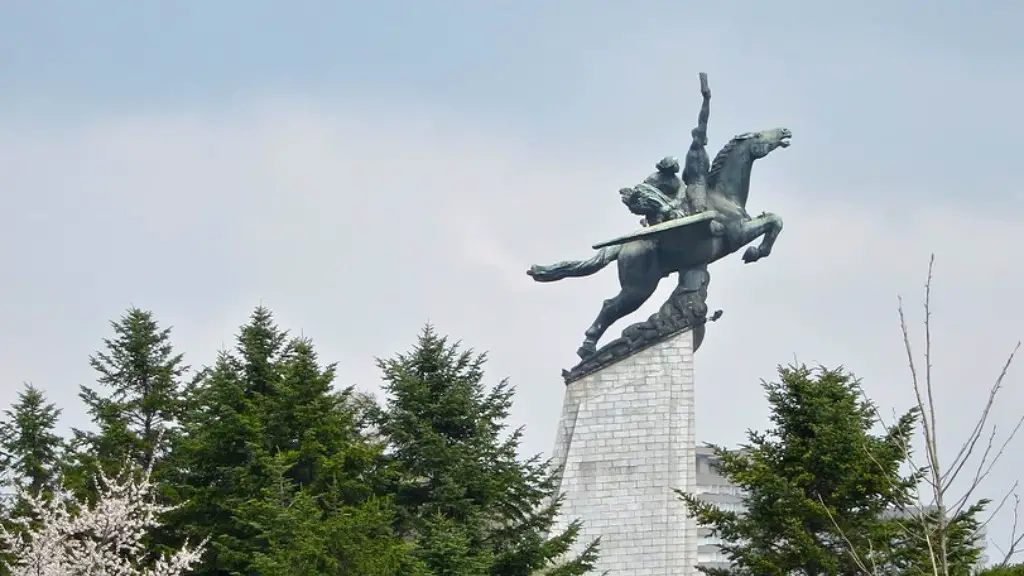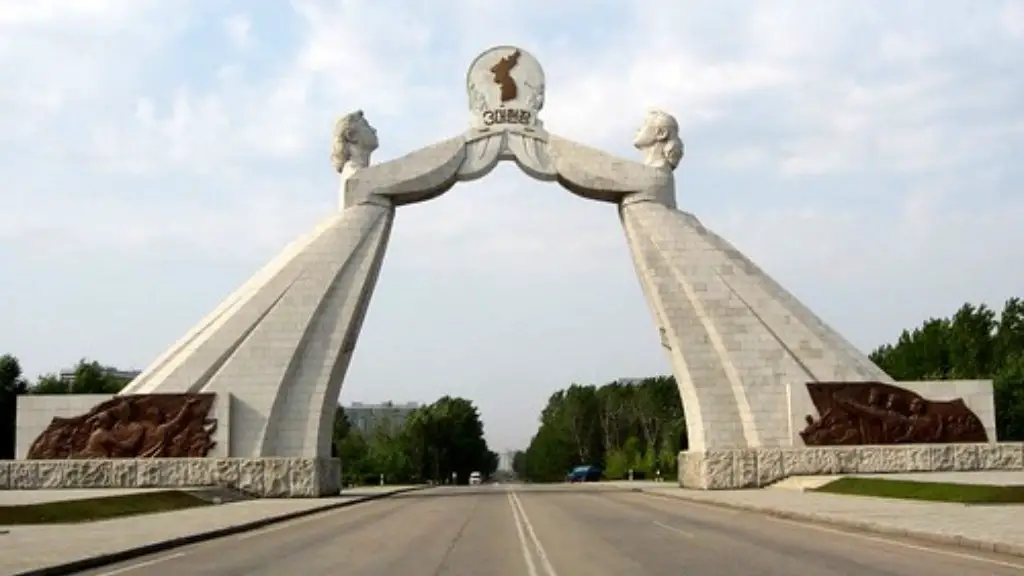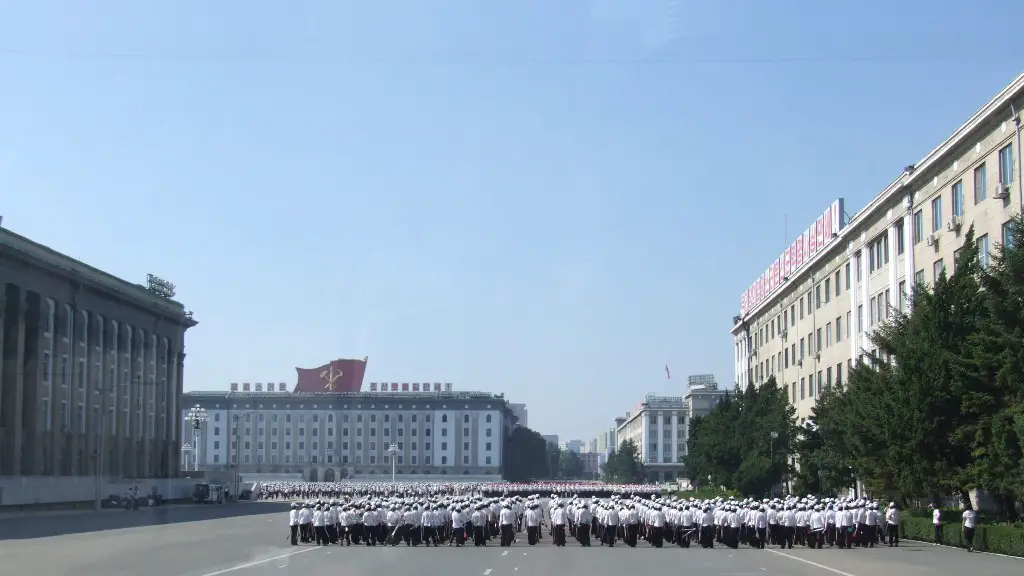North Korea is an isolated country, with a mysterious and reclusive leadership, and a population that suffers from extreme poverty, food shortages, and human rights violations. The North Korean government has, for decades, pursued a policy of self-reliance and self-sufficiency, with a strong focus on militarized security. Until recently, the only information coming out of the country was based on limited and biased accounts and propaganda; however, recent advances in technology have enabled the world to gain unprecedented access and insight into North Korea. This article will consider the current political and economic status of North Korea and the implications it has on its citizens and the region.
Political Situation in North Korea
North Korea is a one-party state, and its leader, Kim Jong-un, has been in power since 2011. Since then, Jong-un has maintained a confrontational stance towards the outside world, particularly the U.S. and South Korea. In response, a series of increasingly severe international economic sanctions have been imposed on North Korea in a bid to bring the country to the negotiating table. While the sanctions have had a severe impact on the country’s economy, it is believed that the North Korean government is unlikely to act in response—further complicating the political situation.
The North Korean government has been increasingly vocal in its condemnation of U.S. foreign policy, particularly in regards to its nuclear weapons program. Kim Jong-un has recently reaffirmed his commitment to the country’s existing nuclear capabilities and has been unwilling to negotiate any reduction in the program. This has increased the level of tension between North Korea and the United States and its allies, creating a difficult diplomatic situation.
Economic Situation in North Korea
North Korea is one of the poorest countries in the world, with a GDP per capita of just $176 USD. The government’s focus on security and defense has resulted in its population suffering from severe food shortages, as well as inadequate access to medicine, education, and health care. More than two-thirds of the population is believed to be living in poverty, and unemployment is estimated to be as high as 50%.
The country’s economy is highly fragile, and heavily reliant on foreign aid. This has been greatly reduced since the implementation of sanctions, as have its trade relations with other nations, as well as its ability to attract foreign investment. This has had a severe impact on the already fragile economy, and is expected to worsen in the coming years.
Effects of North Korea on the Region
The presence of North Korea in the region is a key source of tension, both between the country and its neighbors, and between the country and the international community. The country’s nuclear weapons program has caused considerable anxiety in the region, and has become a major source of international conflict. The country’s confrontational stance towards the U.S. and South Korea has led to a series of moves by the former to apply increasing pressure on the North Korean government, as well as a U.N. Security Council resolution that has further isolated the country.
The North Korean government’s relentless pursuit of its nuclear weapons program has caused further strain between North Korea and the international community. This has led to a number of international efforts, including extensive negotiations and attempts to mediate a peaceful resolution to the conflict. However, these have so far been unsuccessful, and North Korea has shown little sign of relenting.
Impact on Citizens
The political and economic situation in North Korea has had significant impacts on its citizens. Poverty is widespread, and unemployment is high. People are deprived of basic amenities and forced to pay bribes to access government services. Freedom of movement and expression are heavily restricted, and education and health care are largely inaccessible for many. This has resulted in an increasingly dissatisfied population, which has been further exacerbated by government corruption and the lack of meaningful engagement with the international community.
The impact of international sanctions and the country’s heavily-militarized security stance have also had a major impact on the North Korean population. This has resulted in a dramatic decline in living standards and further losses of freedoms, as well as a heightened sense of insecurity among the population.
International Relations
The international community has long been concerned about North Korea’s nuclear weapons program and human rights violations. This has prompted an extensive effort by the international community to engage in dialogue and negotiation with North Korea in an effort to de-escalate the conflict and bring about a peaceful resolution. However, these efforts have so far been largely unsuccessful. North Korea has consistently refused to engage in meaningful dialogue and there is a deep-rooted mistrust of the international community. This has increased the level of tension in the region and furthers the chances of a conflict.
The United States has been particularly active in trying to mediate a resolution to the conflict, and has also imposed a series of economic sanctions in an effort to pressure North Korea into negotiations. Despite these efforts, there is yet to be a breakthrough, and the situation remains highly unstable.
Perception of North Korea by Other Nations
The perception of North Korea by other nations has been largely negative. The aggressive stance taken by North Korea has caused considerable concern among its neighbors, as well as the international community. There is also widespread condemnation of the government’s refusal to engage in meaningful dialogue and its continued pursuit of nuclear weapons. The increasing militarization of the country, and the harsh treatment of its citizens, has further damaged the country’s image.
However, there is growing recognition of North Korea’s potential, in terms of both regional stability and its potential as a market for foreign investment. Culturally, it is seen as a unique and fascinating place, and there is an increasing interest in the country from the international community.
Recent Developments in the Region
In recent years, there have been some positive developments in the region. North and South Korea have held a series of diplomatic talks, and a historic summit between Kim Jong-Un and U.S. President Donald Trump was held in 2018. This saw an agreement that Pyongyang would take steps towards denuclearization and the cessation of hostile rhetoric. Despite this, progress has been slow, as North Korea has refused to commit to taking any concrete steps towards denuclearization.
The U.N. Security Council has also passed a series of resolutions in an effort to further isolate North Korea, including placing further sanctions on the country. These efforts have had some success, though not as much as was hoped. North Korea remains isolated from much of the international community, and any meaningful progress appears to be a long way off.
Capacity for Change within North Korea
The capacity for change within North Korea is unclear. Despite the government’s embrace of market reforms, there is little evidence of real change or greater access to basic amenities. Furthermore, the government has been increasingly hostile towards the international community and has refused to take concrete steps towards denuclearization. This has further isolated the country and tempered hopes of a more open society.
However, there are some signs of progress. There have been small but perceptible improvements in the living standards in some parts of the country, and North Korea has opened its borders to limited tourism. In addition, the government has made efforts to engage with the international community, most recently in the form of the Trump-Kim summit. These steps are positive but remain incremental, and it is unclear what, if any, concrete progress will be made in the near future.
Ongoing Challenges
The security situation on the Korean Peninsula remains highly precarious, with tensions still running high. North Korea continues to pursue its nuclear weapons program, despite international condemnation and numerous economic sanctions. Furthermore, ongoing human rights violations and lack of access to basic necessities has placed further strain on the population. This, coupled with the country’s isolation from much of the international community, presents a significant challenge for the North Korean government going forward.
It is clear that there remains much work to be done in improving the political, economic, and social situation in North Korea. With an increasingly hostile international environment, and a government that has yet to sign up to meaningful negotiations or take concrete steps towards denuclearization, the situation is unlikely to change in the near future.




